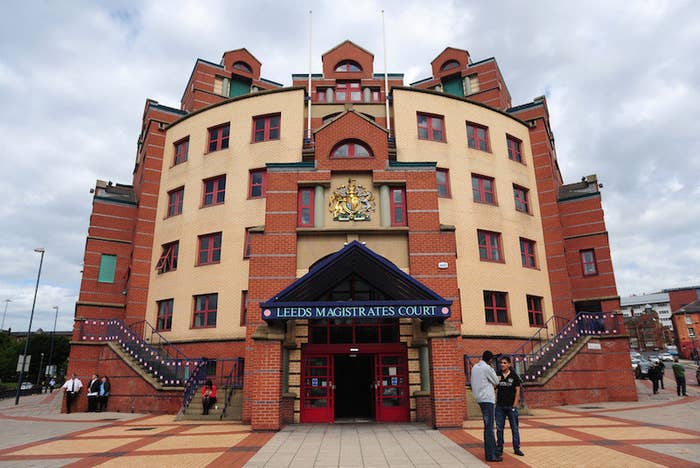A man has been told he can't have sex unless he tell the police 24 hours in advance – and he could face jail if he doesn't.

The man, who is from York and can't be named for legal reasons, was given a sexual risk order on Thursday at York magistrates court, which is currently sitting in Leeds because of flooding.

The Press reported that the order means that if he begins a sexual relationship with any woman or plans to have a one-off sexual encounter, he must tell North Yorkshire police 24 hours in advance.
The order also restricts his internet use and compels him to tell police about any device he could use to call or text people.
It's an interim sexual order and a full hearing will take place on 19 May to decide whether to grant a full sexual risk order. A full order would last for a minimum of two years and has no maximum duration.
Breaching the order could result in a jail term of up to five years, but someone with an order can appeal against it.
BuzzFeed News spoke to the man's solicitor, who declined to comment but confirmed that the order is in place.
North Yorkshire police declined to comment. York magistrates court said it could not provide a copy of the order because of reporting restrictions.
Sexual risk orders were introduced in 2013 and can be issued against someone who hasn't been convicted of a sexual offence but poses a "risk of sexual harm".
Magistrates courts, the police, and the National Crime Agency can apply for them in cases where "an individual has done an act of a sexual nature and as a result poses a risk of harm to the public in the UK or adults or vulnerable children overseas", according to Home Office guidelines.
The wide-ranging order can prevent people from "doing anything described in it".
Sandra Paul, senior associate at Kingsley Napley, told BuzzFeed News that such orders are designed to target people who could commit crime when there isn't enough evidence to bring charges yet.
"These are by definition cases where there isn't enough evidence to charge someone in a way that allows for a realistic prospect of conviction," she said.
"They're saying this person is one of a range of people who might commit an offence, and that's a big step for our criminal justice system to make, in terms of predicting crimes.
"It's like Minority Report, where they predicted the crime might happen therefore we'll deal with them now: 'Let's save ourselves the hassle.'"
Paul said there was a risk courts were "basing these very extreme and punitive sanctions" on a list of behaviours that may or may not lead to criminality.
